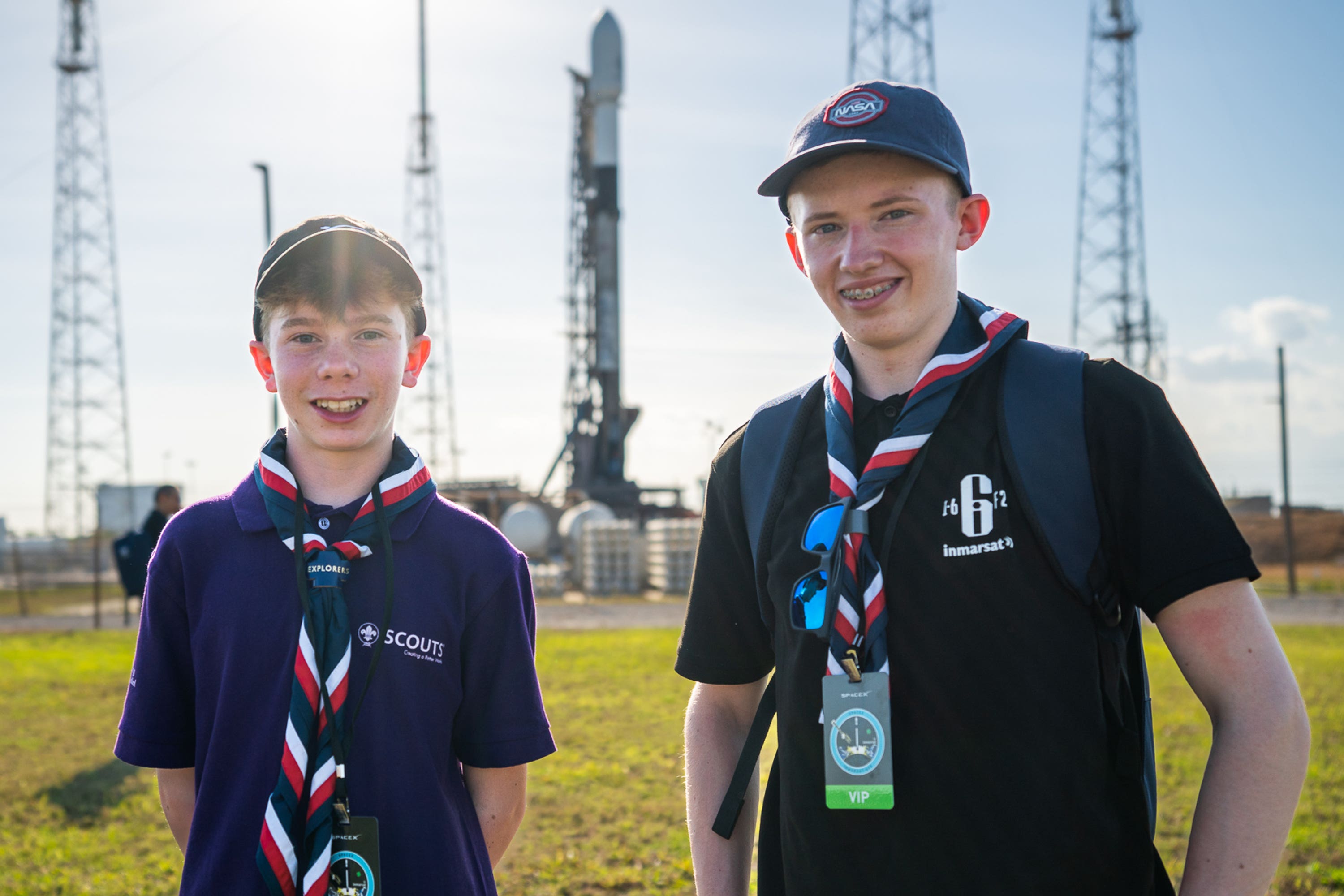British teenagers have VIP access to Florida satellite launch
The pair were at the Kennedy Space Centre on as the Inmarsat I-6 F2 satellite launched successfully into orbit.

Your support helps us to tell the story
From reproductive rights to climate change to Big Tech, The Independent is on the ground when the story is developing. Whether it's investigating the financials of Elon Musk's pro-Trump PAC or producing our latest documentary, 'The A Word', which shines a light on the American women fighting for reproductive rights, we know how important it is to parse out the facts from the messaging.
At such a critical moment in US history, we need reporters on the ground. Your donation allows us to keep sending journalists to speak to both sides of the story.
The Independent is trusted by Americans across the entire political spectrum. And unlike many other quality news outlets, we choose not to lock Americans out of our reporting and analysis with paywalls. We believe quality journalism should be available to everyone, paid for by those who can afford it.
Your support makes all the difference.Two British teenagers had exclusive access to a space launch in Florida after winning a Scouts competition and impressing astronaut Major Tim Peake.
Simon Shemetilo, 16, and Craig Alexander, 14 were present at the Kennedy Space Centre in Cape Canaveral, Florida, in the early hours of Saturday morning as the Inmarsat I-6 F2 satellite launched successfully into orbit.
They were awarded the once-in-a-lifetime prize for their ideas to improve life on Earth with novel satellite technology, and were chosen out of hundreds of UK entries by Maj Peake, who is Scouts’ Ambassador.
Simon, from Tower Hamlets, east London, and Craig, from Reading, told the BBC the experience of watching the satellite launch up close had motivated them to pursue their interests in aerospace technology.
“We got to the launch pad in pitch black darkness, and we waited,” Simon said.
“Then suddenly a bright light, and it just felt like it was the dawn again, it’s completely silent for the first few seconds, and then you start to feel a thunder sensation and the building started to shake.”
Craig said they stood “the closest that you could be” to the launch site.
Explaining his competition entry, Craig said his focus was to find a way of creating cheap and eco-friendly energy.
“I’m going to get that by using solar panels on the satellites to get solar energy from the sun and then beam that down to earth,” he said.
The pair were chosen from hundreds of competition entries around the UK to answer the question: “how do you think satellites in space will help improve life on Earth in the future?”
Simon’s idea was to reduce the environmental impact of data storage centres, by building a network of satellites that he said, “would communicate quickly with each other to store data and process it.”
Maj Peake, who is retiring from his role as a European Space Agency (ESA) astronaut, was impressed by the level of creativity and technical knowledge involved in the boys’ designs.
He said: “Congratulations to Craig and Simon on what I am sure was a life-changing experience.
“A launch is always special, but this was particularly meaningful: It has been great to see Inmarsat and The Scouts come together to inspire the next generation about the immense possibilities for space technology.”
The Inmarsat satellite will now travel to its testing position 22,000 miles above the Equator where it will assist in developing upgraded global communication services.